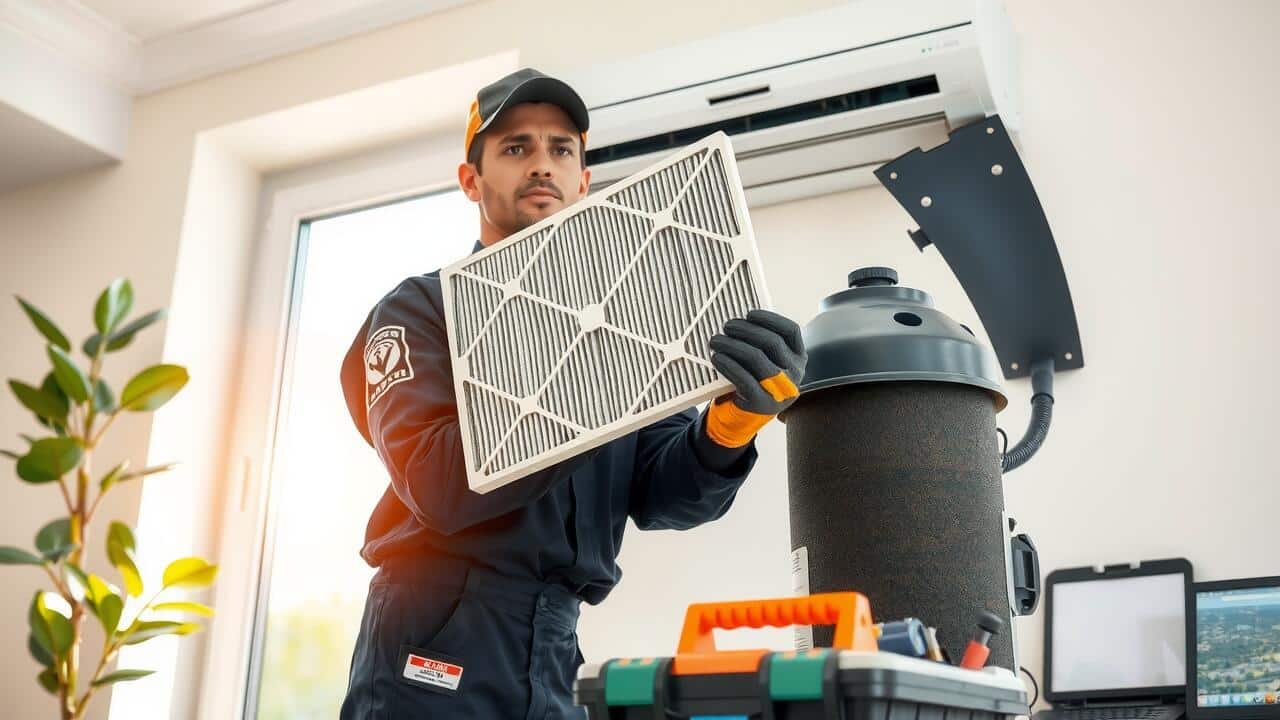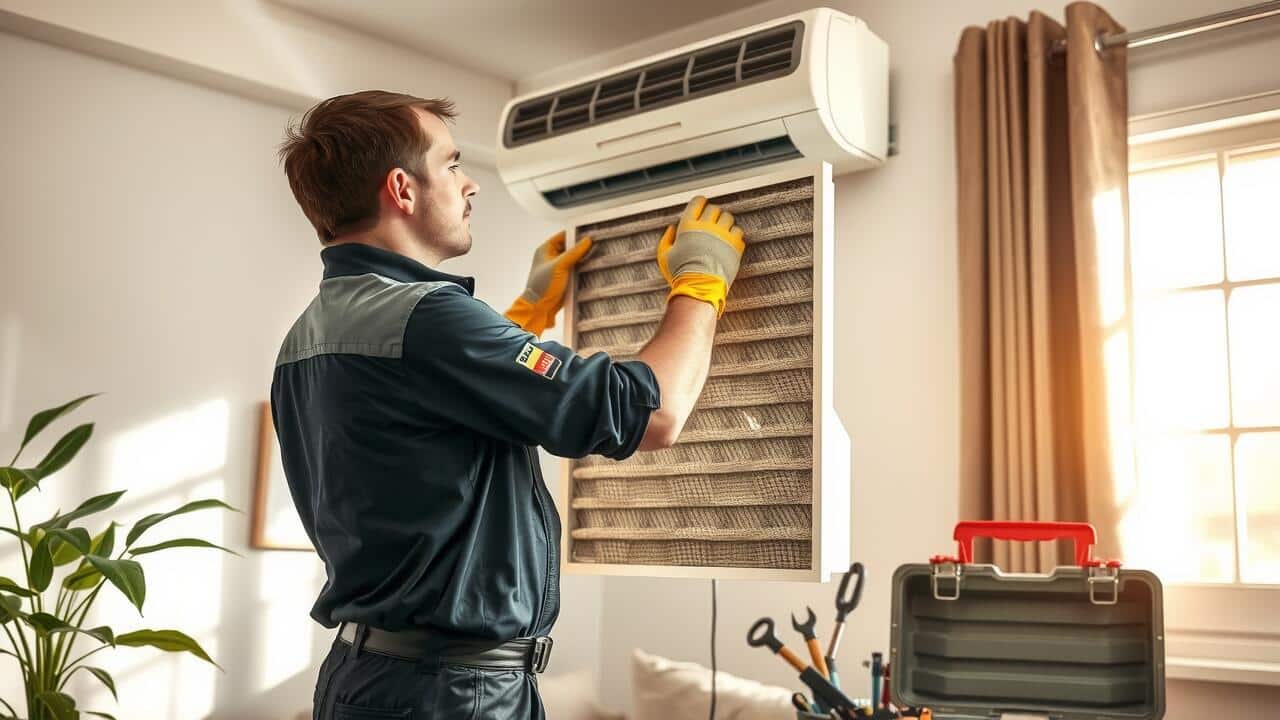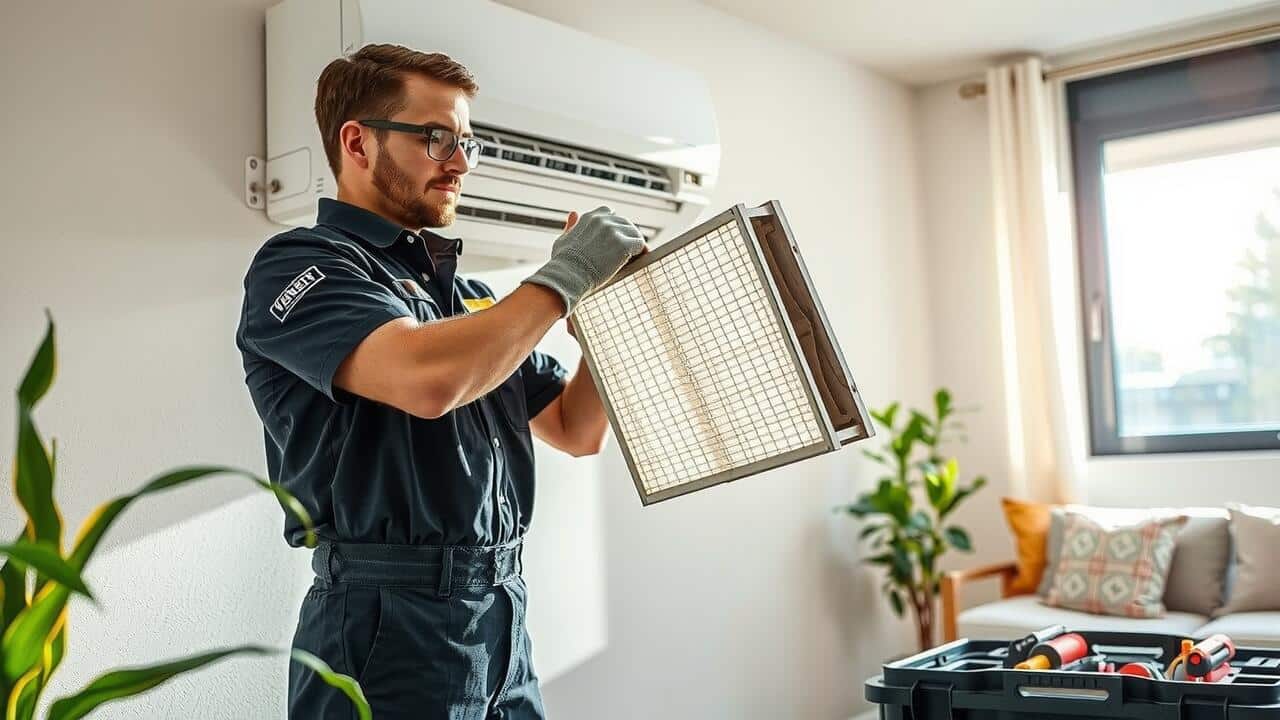
At Express Air Duct Cleaning San Antonio, we understand the vital role that clean air filters play in maintaining a healthy indoor environment. Our Air Filter Replacement service ensures that your HVAC system operates at peak efficiency by removing dust, allergens, and other pollutants that can compromise air quality. Our skilled technicians carefully assess your existing filters and replace them with high-quality options tailored to your specific needs. By prioritizing regular air filter replacement, you not only enhance the airflow and performance of your heating and cooling systems but also contribute to a cleaner, fresher living space for you and your family. Trust Express Air Duct Cleaning San Antonio to keep your air clean and your home comfortable.
The Benefits of High-Quality Air Filters
High-quality air filters play a crucial role in maintaining optimal indoor air quality. These filters are designed to capture a wide range of airborne particles, including dust, pollen, pet dander, and smoke. As a result, they help reduce allergens and contaminants, significantly improving the comfort and health of occupants. Filters with higher MERV ratings provide enhanced filtration capabilities, trapping even smaller particles such as mold spores and bacteria, which can exacerbate allergies and respiratory issues.
Investing in top-tier air filters can lead to long-term cost savings and increased efficiency within HVAC systems. By effectively capturing dirt and debris, these filters ensure that air handlers and air conditioners do not have to work as hard, thereby improving airflow and reducing energy consumption. This efficiency can ultimately contribute to lower utility bills and extend the lifespan of heating and cooling equipment. Quality products like HEPA filters or those with activated carbon can also address odor issues, making indoor spaces more pleasant and fresh.
Long-Term Cost Savings and Health Advantages
Investing in high-quality air filters can result in substantial long-term savings for homeowners. Filters with a higher Minimum Efficiency Reporting Value (MERV) rating capture smaller particles, reducing the frequency of replacements needed. This translates to fewer trips to big box stores and a decreased likelihood of encountering unexpected maintenance issues related to air quality, such as airflow blockages in ductwork. Over time, the cost of these premium filters can be offset by savings gained from improved energy efficiency and equipment longevity.
Health advantages accompany the decision to use superior air filtration systems. Quality filters help eliminate indoor air pollutants, including dust mites, mold spores, and allergens that trigger asthma and seasonal allergies, particularly in vulnerable populations such as children. Improved air quality can lead to better sleep patterns and overall well-being, reducing instances of runny noses or sneezing. By ensuring cleaner indoor air, homeowners not only enhance comfort but also invest in the long-term health of their families.
Custom Air Filters for Unique Needs
Creating air filters customized to meet specific needs is essential for improving indoor air quality. Different homes and environments have unique requirements based on variables such as location, the presence of pets, and individual sensitivities to allergens and irritants. Custom solutions can effectively target specific air pollutants, including harmful bacteria and volatile organic compounds (VOCs), ensuring a healthier living space.
Homeowners often overlook the importance of selecting the right materials for air filters. Options like natural fibers or polypropylene can be tailored to enhance filtration efficiency while maintaining airflow. For those who suffer from chronic coughing or allergies, incorporating specialized filters, such as carbon or charcoal, can significantly reduce irritants in the air, leading to a more comfortable indoor environment.
Tailoring Filtration to Your Home
Finding the right air filter for your home involves considering several factors. High-efficiency particulate air (HEPA) filters are excellent for trapping small particulate matter, making them ideal for households with seasonal allergies. In contrast, electrostatic filters can be effective in handling indoor air pollutants while also promoting better airflow. Disposable filters may be convenient, but investing in high-quality options can lead to improved air purification throughout your living space.
Customizing your filtration system to meet the requirements of your environment is essential. For example, homes in areas with high levels of dust may benefit from thicker filters that capture more particles. Those dealing with volatile organic compounds (VOCs) might find charcoal filters useful, as they target gaseous pollutants. Understanding the specific needs based on household habits and sensitivities significantly improves air quality.
The Role of Air Filters in HVAC Systems
Air filters are an essential component of heating, ventilation, and air conditioning (HVAC) systems. They serve to trap dust, pollen, and other airborne particles, improving indoor air quality. Many types of filters exist, such as HEPA and carbon filters, each designed for specific filtration needs. The efficiency of an HVAC system can significantly decline without regular filter changes. As debris accumulates, airflow becomes restricted, leading to increased energy consumption and higher utility bills.
Proper maintenance of air filters not only enhances air quality but also prolongs the lifespan of HVAC systems. Replacing filters at recommended intervals helps maintain optimal performance, reducing the likelihood of breakdowns and costly repairs. Various manufacturers offer filters with differing specifications, allowing homeowners to select options best suited for their unique environments. Keeping up with these replacements ensures that heating and cooling systems operate efficiently, contributing to overall comfort in a home.
Maintaining System Efficiency
Regular air filter replacement plays a crucial role in maintaining the efficiency of HVAC systems. Dirty or clogged filters can significantly restrict airflow, forcing the system to work harder than necessary. This not only increases energy consumption, leading to higher utility bills, but also shortens the lifespan of the HVAC unit. By using high-quality filters, homeowners can trap harmful bacteria, dust mites, and other particles effectively, thus promoting healthier air quality throughout the home.
Filters tailored to specific needs can enhance the effectiveness of your air filtration system. For example, homes with pets or smokers may require filters with stronger capabilities to capture pet dander and odor particles. Utilizing materials like natural fibers ensures optimal performance, while custom measurements can help fit various unit sizes effectively. By choosing the right filters, homeowners can improve air quality and maintain system efficiency, ensuring a comfortable and healthy living environment for everyone.
FAQS
How often should I replace my air filter?
It is generally recommended to replace your air filter every 1 to 3 months, but this can vary based on factors such as the type of filter, household size, and the presence of pets or allergens.
What are the benefits of using high-quality air filters?
High-quality air filters can improve indoor air quality, reduce allergens and pollutants, enhance HVAC system efficiency, and potentially lead to long-term cost savings on energy bills.
Can I use a custom air filter for my HVAC system?
Yes, custom air filters can be designed to meet the specific needs of your home and HVAC system, helping to optimize air quality and system performance.
How do I know which air filter is best for my home?
Consider factors such as the size of your home, the presence of pets or allergies, and the type of HVAC system you have. Consulting with a professional can also help you choose the right filter.
What happens if I don’t change my air filter regularly?
Failing to change your air filter regularly can lead to reduced air quality, increased energy bills, and potential damage to your HVAC system due to reduced airflow and increased strain.


